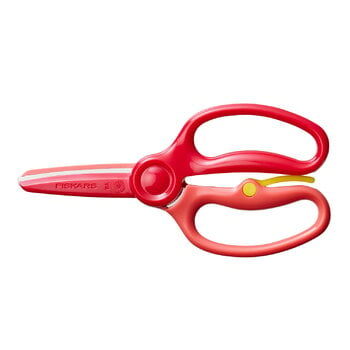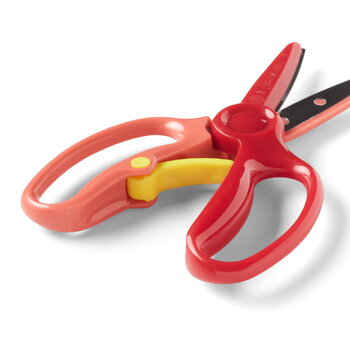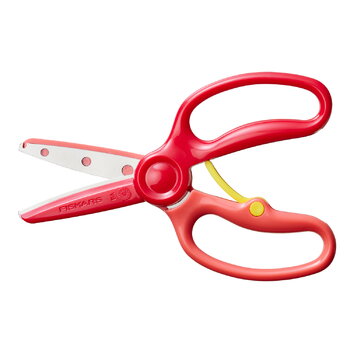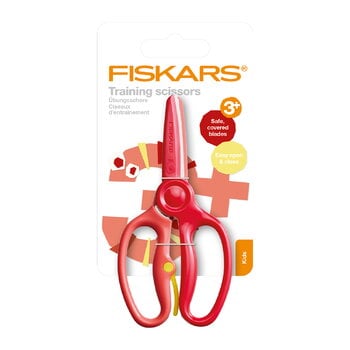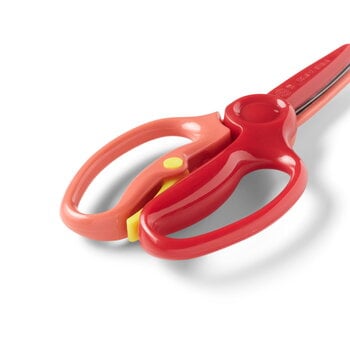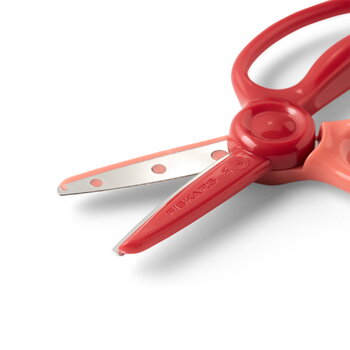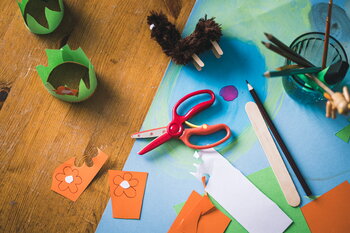The Fiskars training scissors are designed for the littlest of crafters – they allow kids to practice using scissors and let their imagination soar.
The training scissors’ plastic-covered, blunt-tip blades make using the scissors safe, while the wide, symmetrical handles are easy to grip no matter how the kid holds the scissors. The handle also features a nifty training lever that opens the blades automatically after each cut, allowing the child to focus on practicing closing the blades and cutting. When this has been mastered, the lever can be flipped up to begin training traditional cutting. The training scissors are designed for kids ages three and up, and they are suitable for both right- and left-handed crafters.
